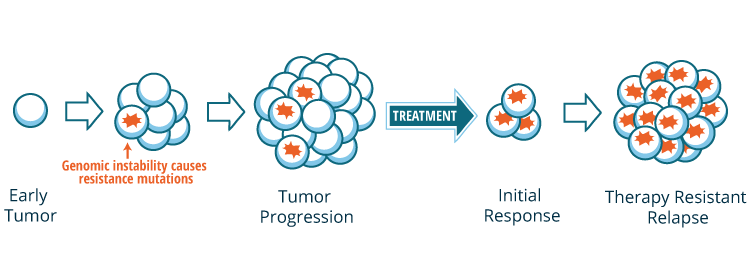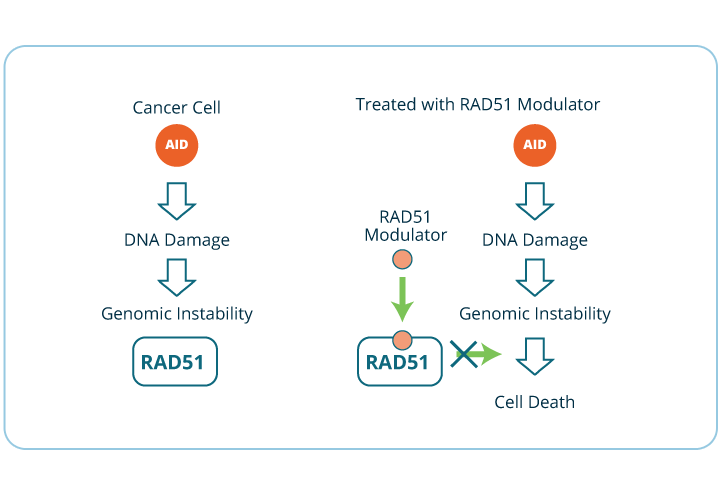Cancer
Genomic Instability is a Cancer Driver

In cancer, there are two types of causative genes: oncogenes are genes that become activated in a cancer and cause its growth; tumor suppressor genes are genes that normally prevent cancer development but are turned off in cancer cells. Both the gain of function in oncogenes and the loss of function in tumor suppressors can lead to DNA damage and genomic instability. Ongoing DNA damage causes tumor evolution, cancer progression, and therapy resistance. However, excessive DNA damage in cancer cells is also an “Achilles heel” and targeting specific DNA repair mechanisms can induce synthetic lethality in cancer cells.
To date synthetic lethal therapies have focused on loss-of-function mutations (i.e. tumor suppressors). In contrast, Cyteir is developing a new generation of synthetic lethal therapies that target gain-of-function genetic abnormalities (i.e. oncogenes).
Through the precise targeting of RAD51, we’ve demonstrated the potential to potently and selectively eliminate AID+ diseased cells with minimal off target effects in healthy cells.

CANCER
Cancer cells experience very high levels of DNA damage, and thus rely on DNA repair systems for their survival and their ability to rapidly mutate. Because DNA repair is at the center of cancer biology, synthetic lethality, targeting key DNA repair factors, has emerged as a promising avenue of new treatments for a wide range of cancers.
“Groundbreaking new discoveries in the biology of DNA repair hold tremendous promise for innovative drug development”
Kevin Mills, PhD - Chief Scientific Officer, Cyteir Therapeutics, Inc.
